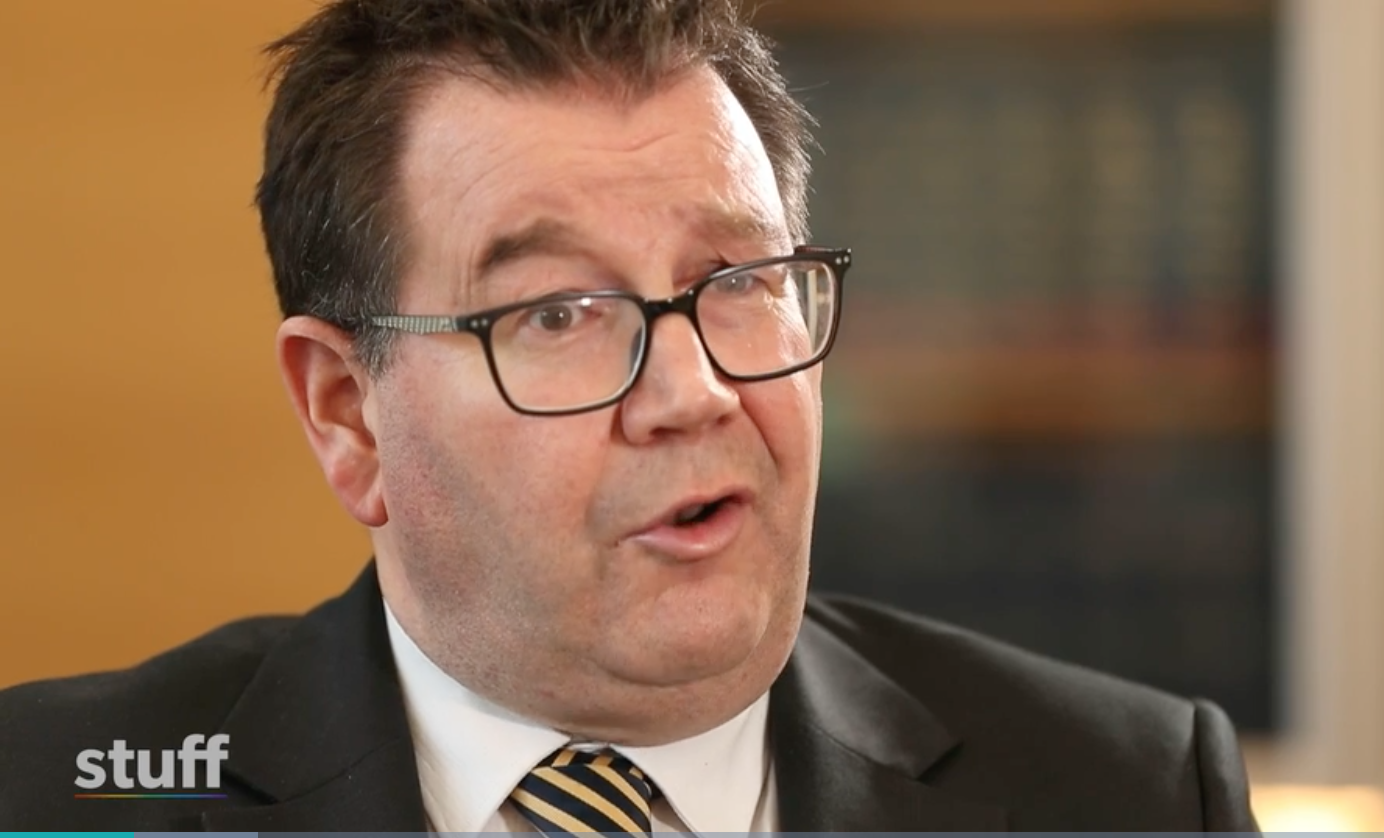So Grant Robertson has announced a massive spend up on roads, especially in the north. On top of that, he’s given a sop to the Greens giving them $200m for decarbonisation but $690m for 22km of road to NZ First. Which one matters most? Clearly there is a disconnect between their green statements and the reality of having to build more roads.
Grant Robertson has been a man out to prove himself. Labour ministers of finance feel the pressure to show the markets, the punditocracy – and possibly themselves – that they are just as fiscally responsible as National Party ministers in the same position.
Robertson, the son of a Presbyterian accountant, has done precisely that.
Luke Malpass, the writer of that piece, could easily have accurately described Robertson as the son of a convicted fraudster and, based on what has been announced in the package, it really is a fraud on the taxpayers by Robertson.
So, having put in the ground work, he has now acceded to both pressure and reality and attempted to make a virtue of it, steering a $12 billion infrastructure package ($8b of announced spending, plus $4b to be rolled out over the coming years) covering new roads, rails, hospitals and schools. Some projects are expected to be approved by the end of 2020. Others are further out.
It includes an emphasis on roads, reversing both the Government’s rhetorical and erstwhile ideological opposition to new highways. Robertson knows that electric vehicles will still need roads and that public transport can’t easily help deliver goods to shops, kids to swimming practice, or take families on holiday. The Government sees climate change as important, but recognises that roads need not be a zero-sum villain in its efforts to cut emissions.
It’s a fraud. They are spending up on roads that National had already allocated funds for and the government cancelled. Now three years later they are rolling it out as if it is new spending, and worse there has been a hiatus of three years while they dithered. No surprises that the Transport minister is Phil Twyford.
The announcement is also a useful political tool by which Labour can distance itself from the Greens in an election year. Twenty minutes after the plans were announced, Greenpeace denounced them as missing “an opportunity to clean up New Zealand’s transport system”.
Yet that notwithstanding, this will be disappointing for the Greens: they specifically got only $200 million for infrastructure decarbonisation, in a multi-billion package.
There is also more money being spent on schools and hospitals infrastructure.
In comparison, NZ First gets $690m for a 22-kilometre road in Northland. Politically this is simple: NZ First’s return to Parliament is more important to the Government’s re-election prospects than if the Greens lift their party vote a bit.
Of course, all three Government parties will claims [sic] credit for every cent spent on rail.
You’ve got to hand it to Winston, he seems to be a far better negotiator than the Greens and continually delivers for his constituency. This package shows that the green rhetoric from Ardern is just like everything else she says: a bumper sticker slogan with no real policy depth to back it up. No matter which way it is spun, you are left with the impression that NZ First and roads matter a lot more to Labour than the Greens and their nonsense.
Robertson is clever however because National can only come out and say “We will do it too, just a bit better”. I don’t know about you but “Vote National, not as shithouse as Labour” doesn’t seem to be a winning electoral proposition to me.
The National Party is inevitably countering that this is the Government simply reinstating National’s roading plans that it had initially ditched when it came to office. And into the bargain, it argues, the Government has smashed both confidence and the procurement pipeline that big infrastructure companies rely on. It has argued, and will continue to argue, that Labour doesn’t really “believe” in roads.
The Government, and Robertson, won’t be overly worried by these claims. It figures that people only care about what will actually be built and how it will help them get to where they need to go, not how the Government got there.
One thing is for sure, the winner of the infrastructure retail politics battle will set themselves up well for September’s election.
Stuff
This is where the power of incumbency kicks it. The government has all the resources of government at their disposal. This was pointed out before the last election when some National backbenchers thought the best option was to lose, to clean out the old guard of National. That was a defeatist attitude that cedes power. Those same fools are saying the same thing with regards to the leadership of Simon Bridges. They’d rather see him lose than win power because it would get him and Paula Bennett out of the way. But it admits that they want to spend another 3 years in the wilderness.
The power of incumbency is hard to defeat. Oppositions don’t win elections, governments lose them, and Jacinda Ardern will likely make a better case to continue than Bridges will make to change. Having a policy platform in almost every main instance that is similar to Labour but slightly better at delivery isn’t enough to win power.
Advantage: Labour, right now.
If you enjoyed this BFD article please consider sharing it with your friends

